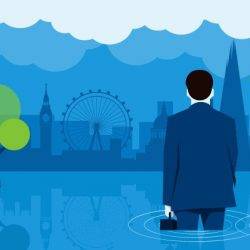February 7, 2019
Sleeping on the job: the cultures of sleep and napping from around the world
 There’s a pretty well proven link between lack of sleep and negative emotion, but is catching 40 winks whilst at work a proven solution? Research from the National Sleep Foundation (NSF) suggests that lack of sleep can have a negative impact on emotion. Could naps of 20-30 minutes make for a more productive workforce, and have a positive impact on mood, concentration and attention? Following the findings that loss of sleep could be costing the UK £40bn a year, is it time to make a change to our sleeping habits? To find out, Brother has produced a study of the eight sleeping customs from around the world, and explored how they could have a positive impact on people and businesses.
There’s a pretty well proven link between lack of sleep and negative emotion, but is catching 40 winks whilst at work a proven solution? Research from the National Sleep Foundation (NSF) suggests that lack of sleep can have a negative impact on emotion. Could naps of 20-30 minutes make for a more productive workforce, and have a positive impact on mood, concentration and attention? Following the findings that loss of sleep could be costing the UK £40bn a year, is it time to make a change to our sleeping habits? To find out, Brother has produced a study of the eight sleeping customs from around the world, and explored how they could have a positive impact on people and businesses.























 Well over a third (40 percent) of UK businesses have experienced a cyber security breach or attack in the last 12 months, according to new government figures as it announces the UK is set to become a world leader in the race to eradicate some of the most damaging cyber security threats. The Business Secretary Greg Clark has promised that increased security and protections will be built into digital devices and online services with the help of up to £70 million in government investment through the Industrial Strategy Challenge Fund and backed by further investment from industry.
Well over a third (40 percent) of UK businesses have experienced a cyber security breach or attack in the last 12 months, according to new government figures as it announces the UK is set to become a world leader in the race to eradicate some of the most damaging cyber security threats. The Business Secretary Greg Clark has promised that increased security and protections will be built into digital devices and online services with the help of up to £70 million in government investment through the Industrial Strategy Challenge Fund and backed by further investment from industry.












February 4, 2019
Getting back to environmental basics in the Anthropocene era 0
by Alison Kitchingman • Comment, Environment, Facilities management, Workplace design